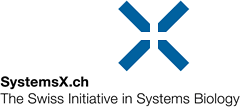AntibodyX
Systems Biology of Humoral Immunity
The outcome of this project will have a substantial impact on systems immunology, specifically in the area of the co-evolution that occurs between antibody responses and viruses. This project offers the potential to be exploited for the discovery of therapeutic antibodies, vaccine development, and the prediction of immunological protection and viral escape.
The overall goal of AntibodyX is to optimize and use systems biology-based methods for the quantitative molecular analysis of antibody repertoires that develop in response to pathogenic viral infection. We will be able to characterize the evolution of humoral immunity and antibody responses at an unprecedented level of depth.
Model systems and clinical samples
To study the evolution of the antibody repertoire during both acute and chronic viral infections, sophisticated and well-characterized mouse models of viral infection (lymphocytic choriomeningitis virus, LCMV) will be used. An extensive amount of effort and resources will be devoted to establishing and optimizing the experimental and computational methods needed for high-throughput analysis of antibody repertoires. In addition, the evolution of antibody responses from human clinical samples, including samples from patients exposed to HIV and influenza, will be tracked.
An insight in the arms race
To build computational models of the contrasting and conflicting evolutionary pathways being utilized by both pathogenic viruses and host antibody responses, genetic, protein and cellular level data will be integrated. The generation of such precise and quantitative models will provide a tremendous amount of insight into the evolutionary arms race that takes place between pathogen and host.
| Principal Investigator | Prof. Sai Reddy, Department of Biosystems Science and Engineering (D-BSSE), ETH Zurich |
| Involved Institutions | ETH Zurich, University of Zurich |
| Number of Research Groups | 5 |
| Project Duration | Feb. 2013 – Jan. 2017 |
| Approved SystemsX.ch Funds | CHF 1.379 million |
Updated June 2013


